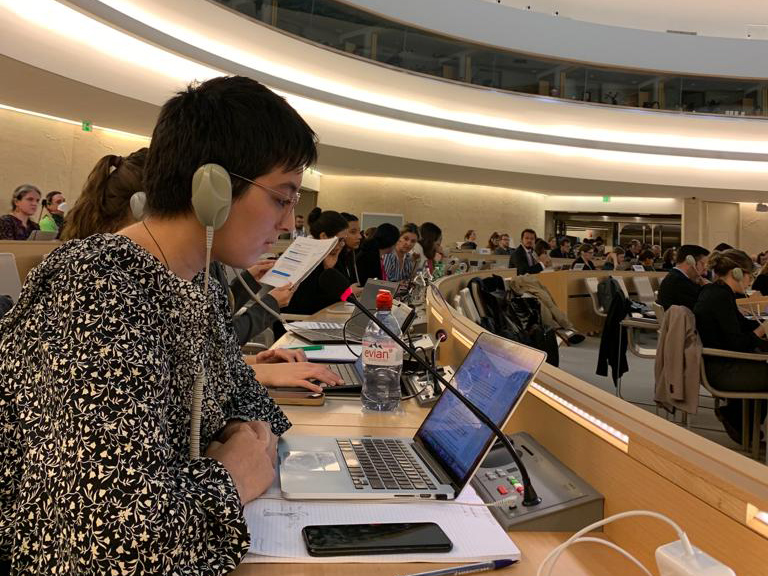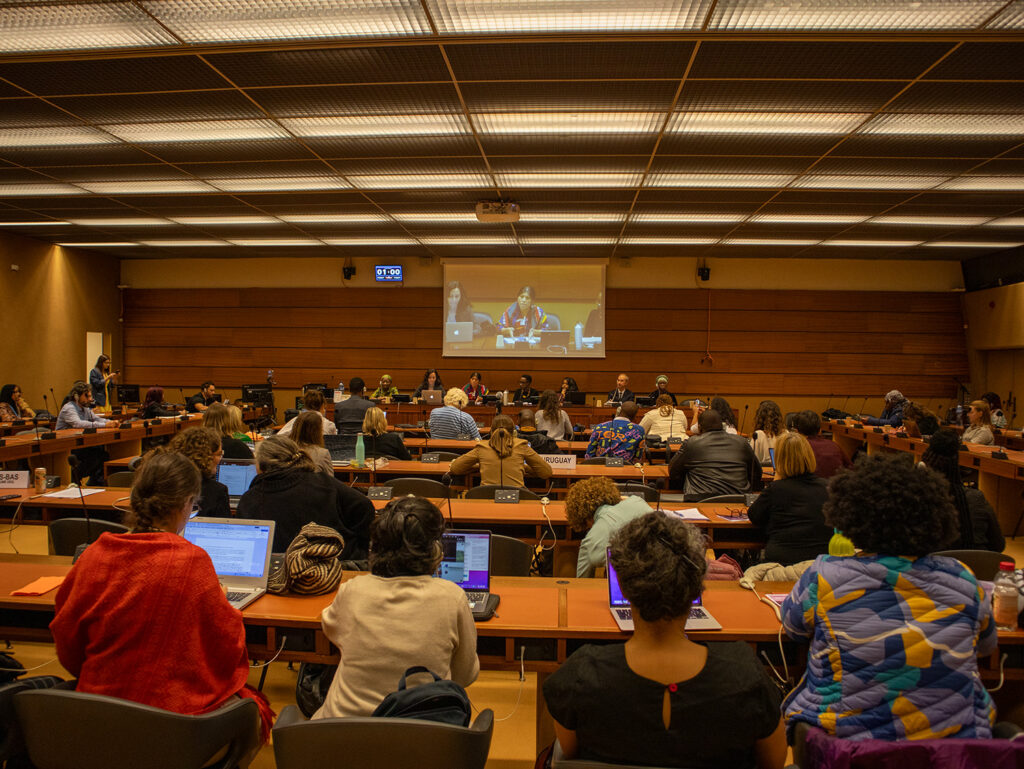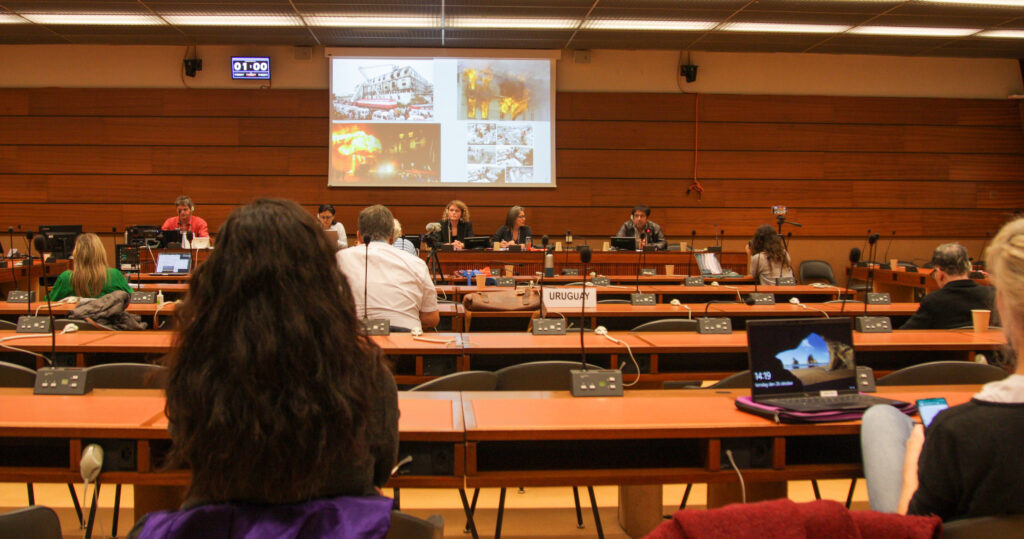During the last week of October, UN Member States gathered in Geneva to continue negotiations on a new treaty that would regulate the activities of transnational corporations under international human rights law. This open-ended governmental working group (IGWG) was established in 2014 by the Human Rights Council, acknowledging that businesses are among the key drivers of human rights violations around the world.
Franciscans International has actively participated in all nine sessions of the IGWG to date, providing both technical expertise and offering a platform to partners so that their firsthand experiences can inform the negotiations. In the past, we have hosted Franciscans and other human rights defenders to provide testimonies on the impacts business activities have on their communities, often with widespread and inter-generational consequences.
Negotiations start in earnest
At the start of the 9th session, several States raised questions and concerns about the process through which the fourth revised draft – the proposed text under negotiation – was developed. These included the incorporation of some of the controversial 2022 proposals made by the chair, as well as the lack of intersessional contributions from the African region.
Following agreement on posting both the fourth revised draft in ‘clean’ and ‘track changes’ formats during the session, negotiations continued and covered the preamble and Articles 1 to 3 during the week. The session saw broad participation by States, as well as many States that had not previously joined the negotiations.
While this was an encouraging sign, there is still a fundamental disagreement between States on the scope of the treaty and what types of businesses it should cover. With large financial interests at stake, there have been repeated attempts by some States and corporate interests to weaken the text. FI delivered and participated in oral statements, including as members of the ESCR-Net and the Feminists for a Binding Treaty coalitions. Throughout the negotiations, our interventions have focused on the need to include robust language that will establish actionable tools to meet the reality many communities are facing at the grassroots.



Voices from the grassroots
We also co-sponsored two side events. The first event, “A Cross-Regional Discussion to Spotlight Key Issues the Treaty Can Address From a Feminist Perspective”, featured an FI staff member and a Franciscan Sister from Mozambique, who discussed the relevance of the future treaty in situations of conflict based on her experience supporting internally displaced persons. A second event, looking at concrete cases of human rights violations and eco-destruction, examined how these examples addressed specific provisions of the proposed treaty, including its provisions on prevention, access to justice, and liability.
In moving forward, the report of the Chair-Rapporteur offered a series of recommendations, including to present a procedural decision to the Human Rights Council requesting additional human and financial resources to support the process, to hold intersessional consultations in regard to methodology; and to convene “intersessional, cross-regional thematic consultations” on the draft treaty.
FI will continue to follow the process closely, and actively contribute, when possible, to intersessional meetings and other opportunities for consultation.

